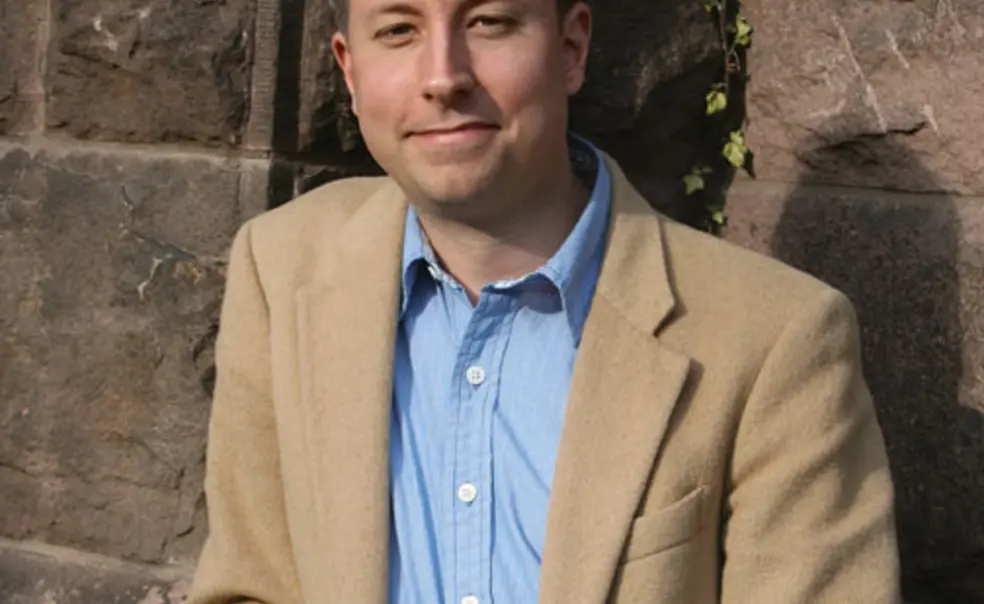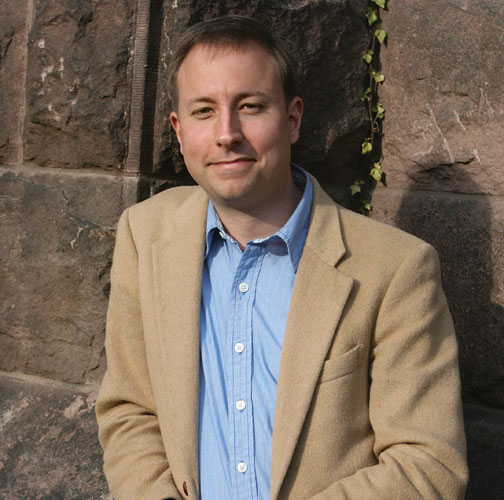Ending the stigma of jobs outside academia for Ph.D.s
Last fall, Princeton history professor Anthony Grafton took graduate schools to task for failing to adjust to a grim reality of the job market — that many history Ph.D.s will not be able to land a job in academia.
In The Chronicle of Higher Education, Grafton wrote that despite a decades-long slide in the number of faculty positions, “graduate programs have been achingly reluctant to see the world as it is. ... The goal of training remains the same: to produce more professors. ... We warn [students] to develop a ‘Plan B’ in case they do not find a teaching post. And the very words in which we couch this useful advice make clear how much we hope they will not have to follow it.”
The issue applies to many fields in the humanities — such as English, classics, and religion, Grafton told PAW in March — where a nonacademic job often is perceived as a second-place accomplishment for those who don’t achieve the brass ring, a tenure-track teaching position. In the sciences and social sciences, he said, working in industry is more common and not stigmatized. Grafton called on universities to change their training and career preparation to better equip students for life outside academia.
William Russel, dean of the graduate school, said Grafton’s article “made a strong and constructive statement about the situation.” The graduate school is concerned about this issue, Russel said, and is supporting departments that invite alumni to discuss their nonacademic careers. So far, the English, molecular biology, and politics departments have held such events.
Lending urgency to the issue is “a very challenging job market for new Ph.D.s in humanities for the last two decades,” said John Curtis, research director for the American Association of University Professors. In the last decade, many retiring faculty have not been replaced, or their positions have become non-tenure-track jobs, said Maggie Debelius *00, co-author with Susan Basalla May *97 of So What Are You Going to Do With That? Finding Careers Outside Academia. Debelius worked at a dotcom after earning her Ph.D. in English and is now at Georgetown in a non-tenure-track position. “There just aren’t enough jobs to go around,” she said.
Teaching-job openings for new English Ph.D.s declined by 45 percent from 2009 to 2011, said Professor Deborah Nord, director of graduate studies for Princeton’s English department. “We try to alert [our students] to the realities of the job market,” she said. But “it would be inappropriate and destructive, I think, to coax them out of the profession once we have admitted them.” The issue is more dire for those without a degree from “an elite institution” such as Princeton, she said.
“There’s a kind of willful naiveté” among many entering graduate students in believing they will get teaching jobs, said Kjell Wangensteen, who is a Ph.D. student in Princeton’s art and archaeology department and the outgoing communications director for the Graduate Student Government. “People say, ‘The economy is going to improve by the time I graduate.’”
Those students who do look for nonacademic positions may be propelled by factors in addition to the job market: Academics have long hours, frequent relocations, and a lack of job security.
But many students feel nonacademic careers carry a stigma, said Debelius, who interviewed hundreds of Ph.D.s for her book: Students who acknowledged applying for both academic and nonacademic positions feared that “advisers would be less likely to write a glowing recommendation or make that extra phone call if they feel the student is not devoted to the profession.”
Solid statistics about the careers in which humanities Ph.D.s end up are hard to find because many doctoral programs do not collect comprehensive data. At Princeton, Ph.D. students are surveyed just before graduation, but that snapshot can be deceiving. The 2011 survey found just 6 percent of humanities Ph.D.s took nonacademic positions, 16 percent had postdoctoral fellowships, and 58 percent held teaching positions, most in higher education. Nineteen percent did not have jobs. But postdocs usually last one or two years, and teaching positions also may be short-term.
“It has become harder for students to win a tenure-track job directly upon taking the Ph.D.,” said Princeton classics professor Robert Kaster. “It has become more common for people even at top programs like ours to serve a kind of extended apprenticeship, spending two to three years in one or another temporary position.”
Grafton wants universities to better prepare students for nonacademic jobs by broadening the curriculum, adding workshops exploring the working world, offering digital technology, and encouraging internships. This spring, his department will offer a weeklong “boot camp” focusing on history as practiced at museums, historical societies, and libraries. While many of Grafton’s former students teach, he said, others work at foundations and educational testing companies.
The Office of Career Services offers panels for graduate students on nonacademic careers, such as in higher-education administration, and workshops on translating an academic’s lengthy CV into a shorter résumé.
Marketing yourself for nonacademic jobs is “kind of a professional reinvention,” said Christopher Moses-Jenkins *10, who is dean of students at Brooklyn’s Berkeley Carroll School. Interviews mean talking to “an audience that doesn’t really care about conference papers in the same way,” he said.
But for current graduate students, the biggest struggle may be feeling comfortable revealing their interest in a nonacademic career, Wangensteen said.
“There’s a perception that advisers will lose interest in your project,” he said. “What’s really needed is a more open acknowledgment of the importance of nonacademic career paths, which are just as legitimate as the tenure track.”













1 Response
Anonymous
10 Years AgoBUZZ BOX: When Ph.D.s need a job outside the ivory tower
Alumni posted comments at PAW Online on an April 4 Campus Notebook story about ending the stigma for jobs outside academia for Ph.D.s in the humanities, often considered a “Plan B.”
GLORIA ERLICH *77 wrote that she had found a satisfying career as an independent scholar, publishing two books and many articles. “But this alternative is possible only with independent wealth or on what I call a ‘matrimonial fellowship,’ ” she said.
STEWART A. LEVIN ’75 commented that when those with graduate degrees in the sciences want to return to academia after working in industry, they often encounter an attitude that “they haven’t paid their dues.” What isn’t recognized, he said, is that for private workers, “job security is a thing of the past and the hours are just as long, and publication preparation is done on your own time.”
DAVID FINKELSTEIN *90, vice president of a think tank in Washington, D.C., had a bit of good news: “I am Plan B!” he wrote, “and I am looking to recruit new Ph.D.s in Chinese history or Chinese studies.”